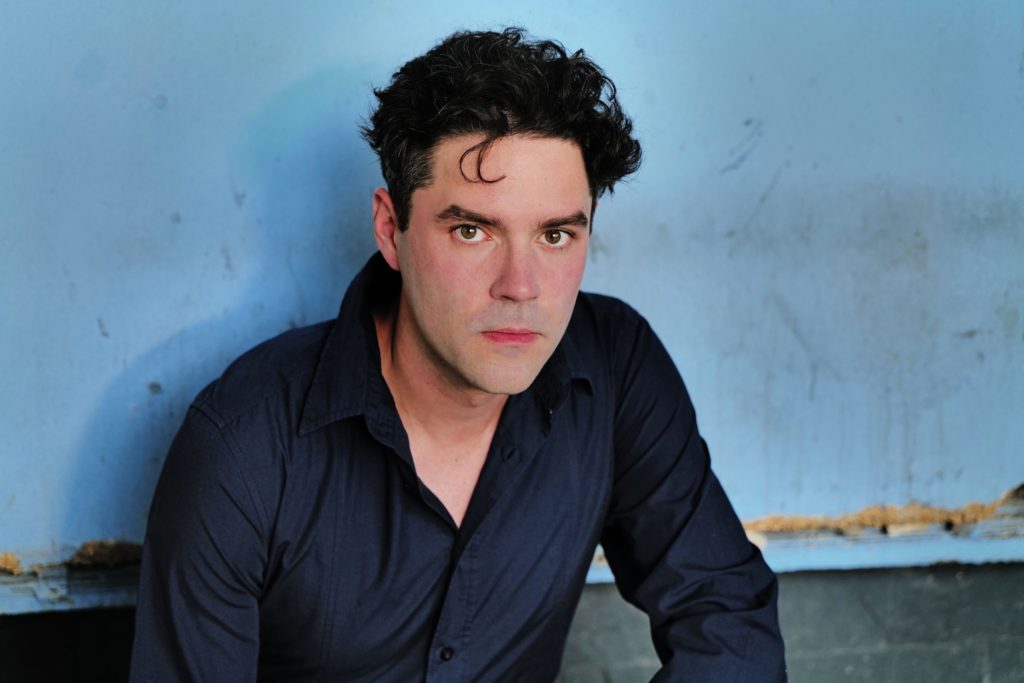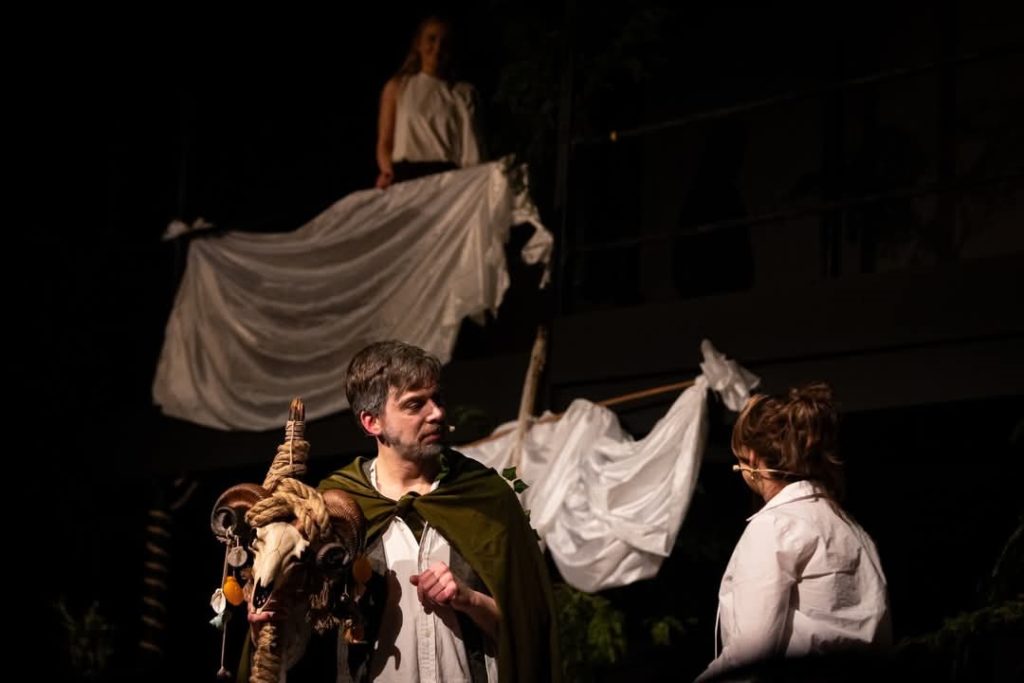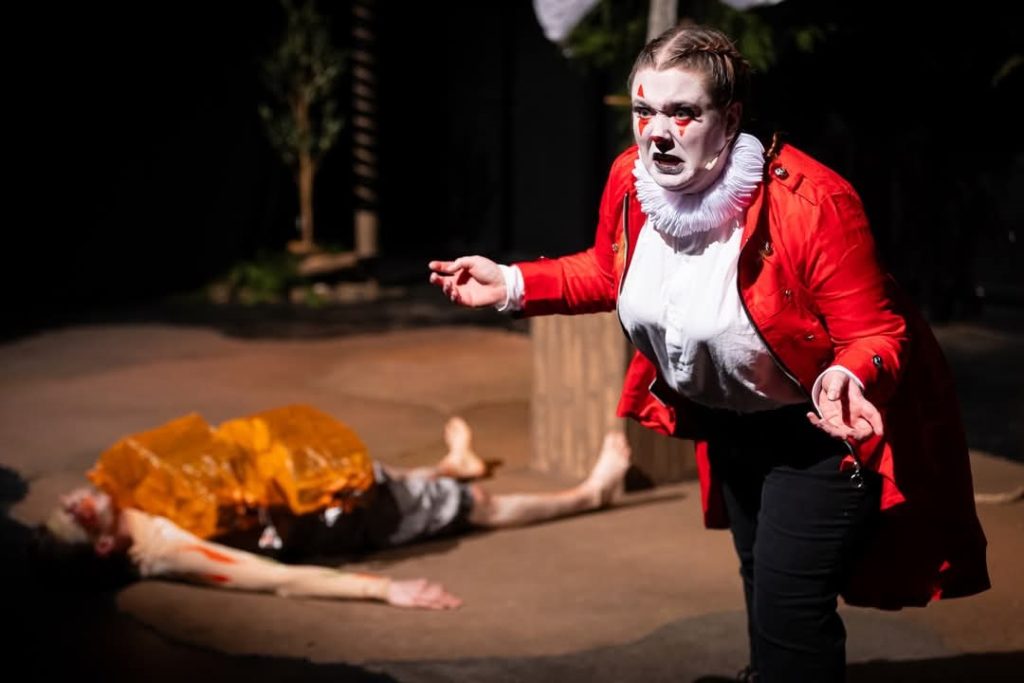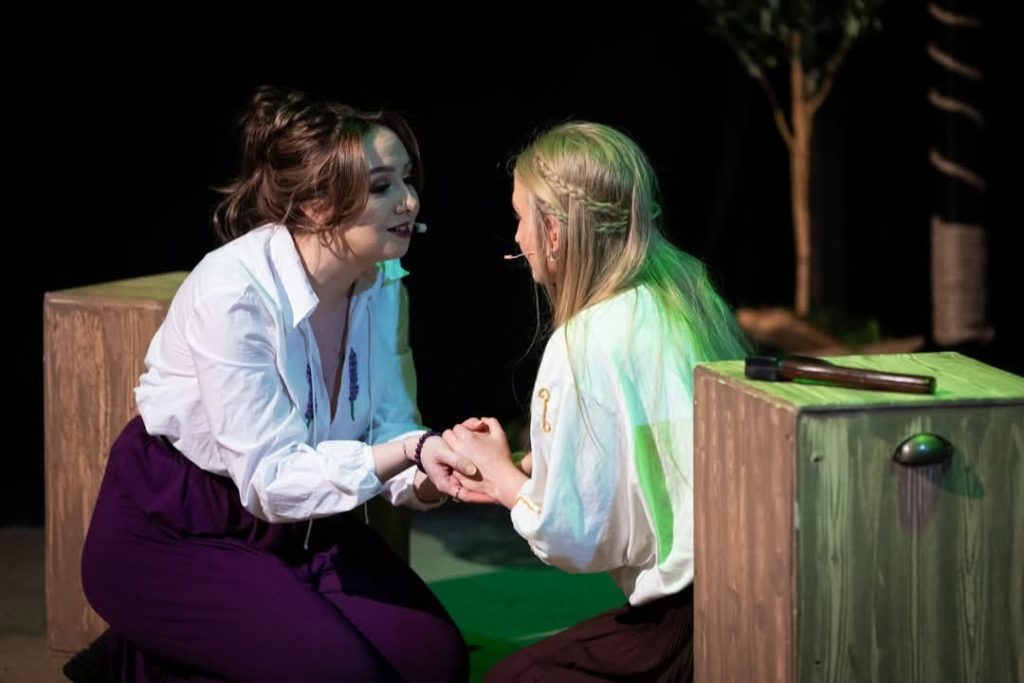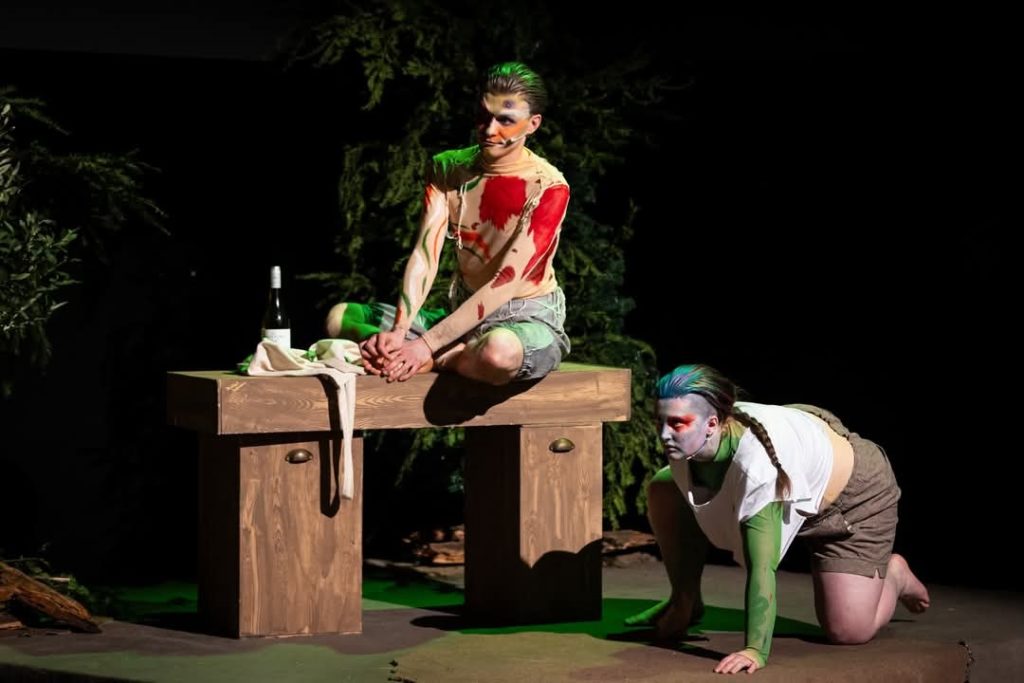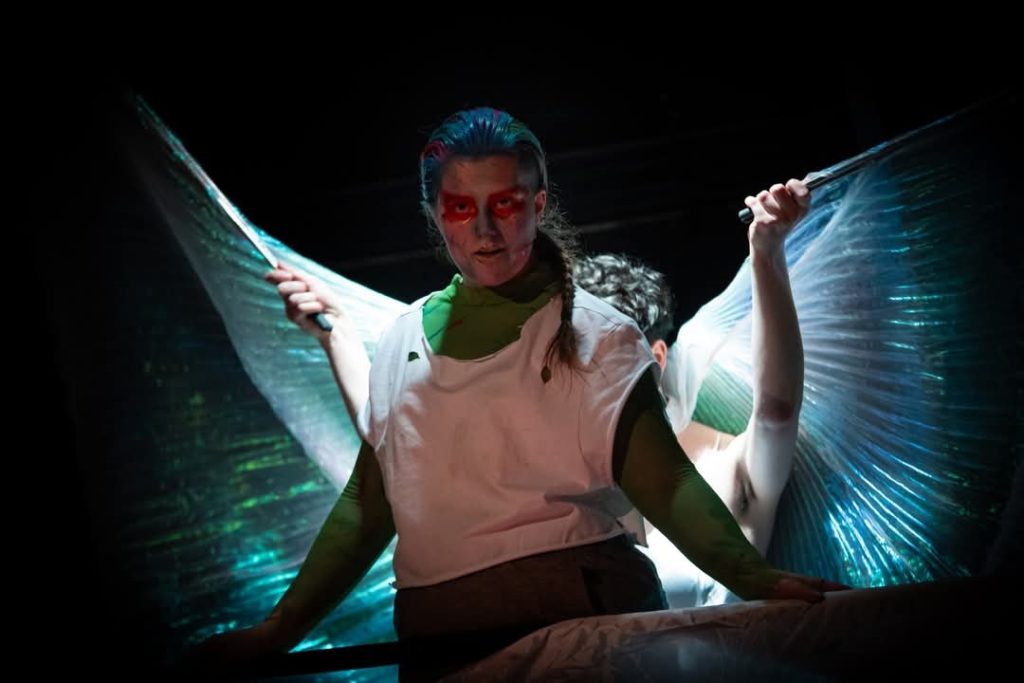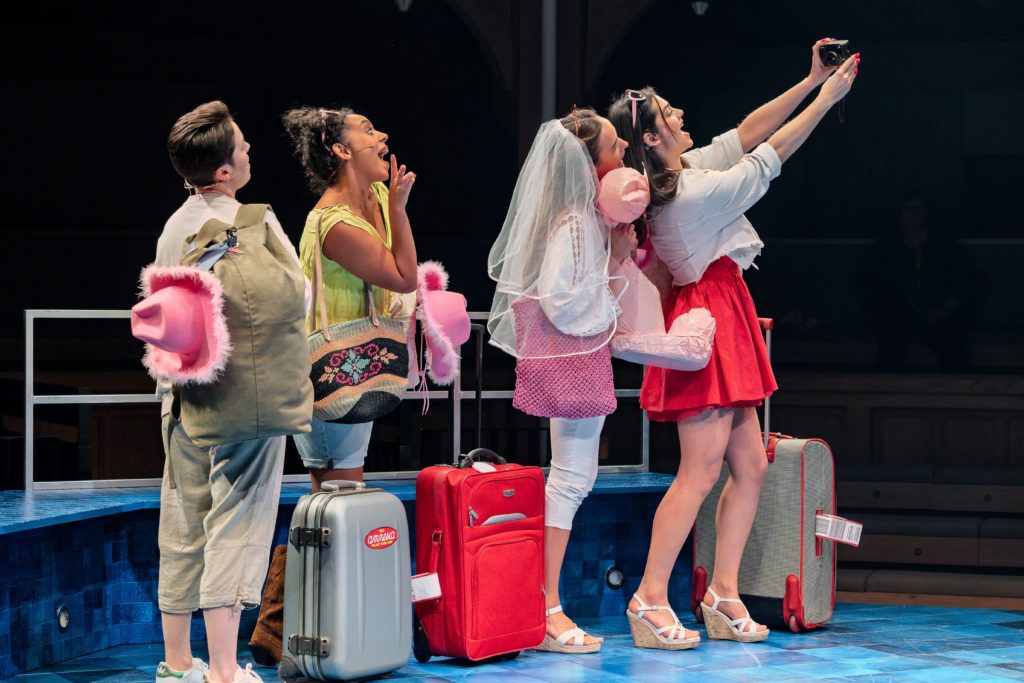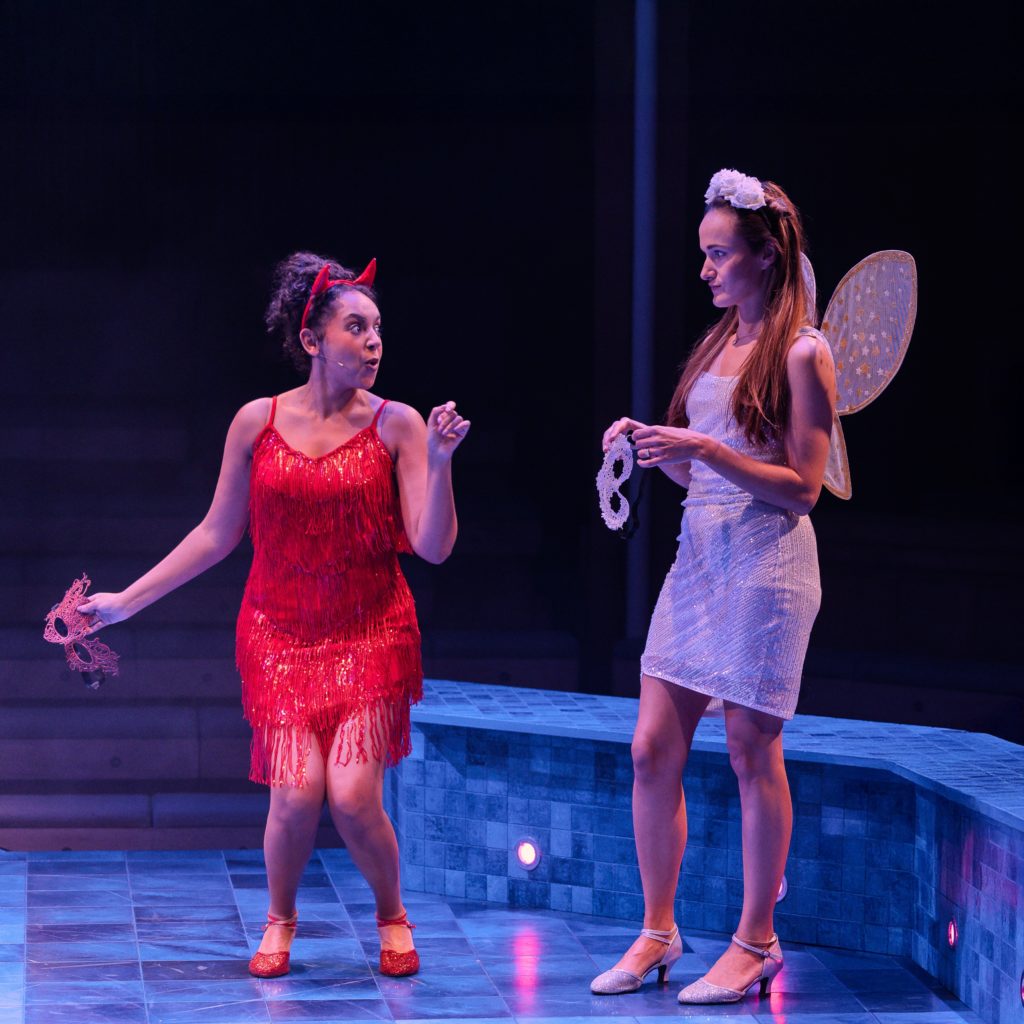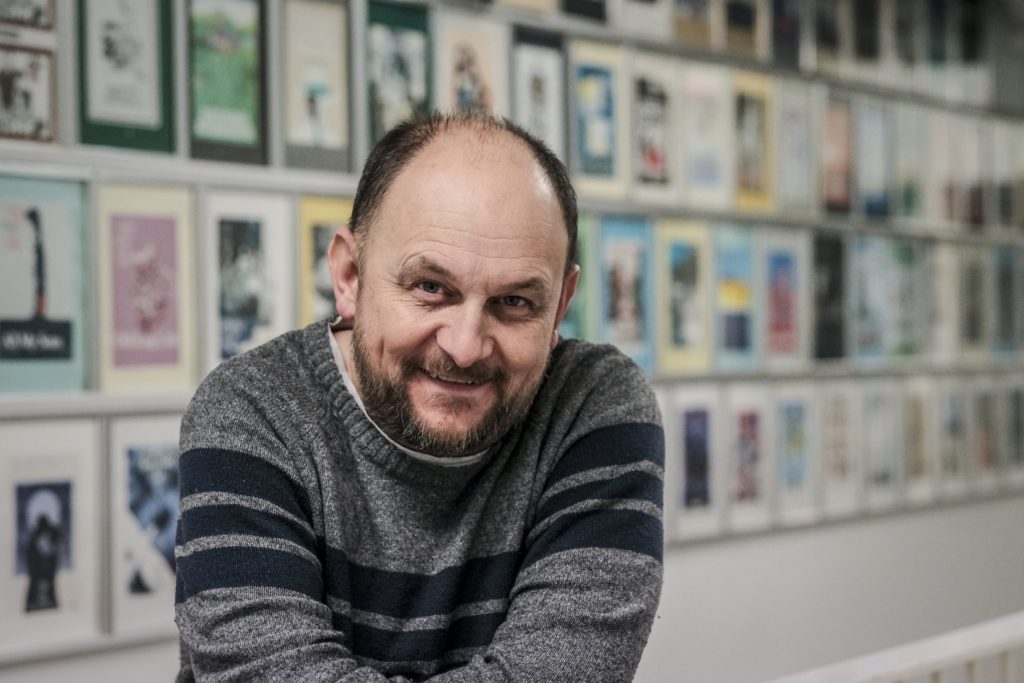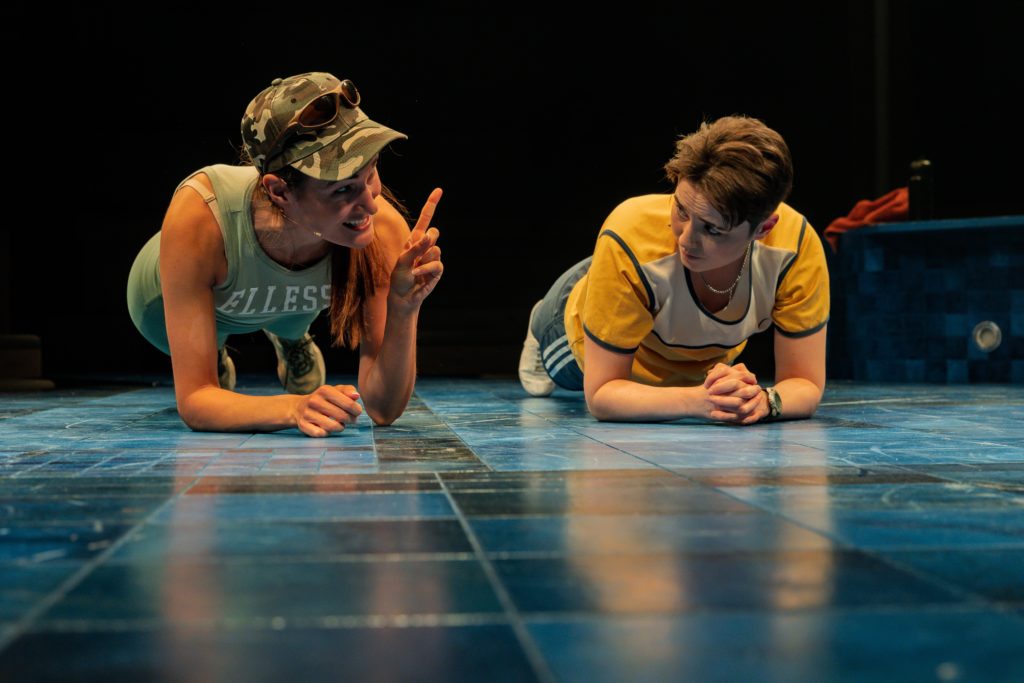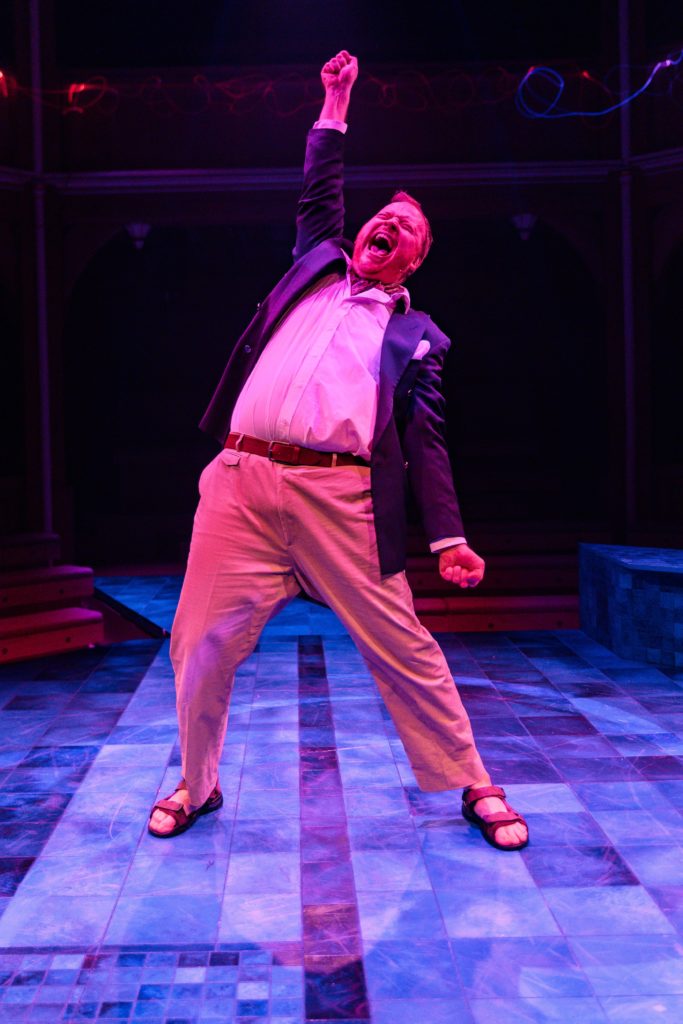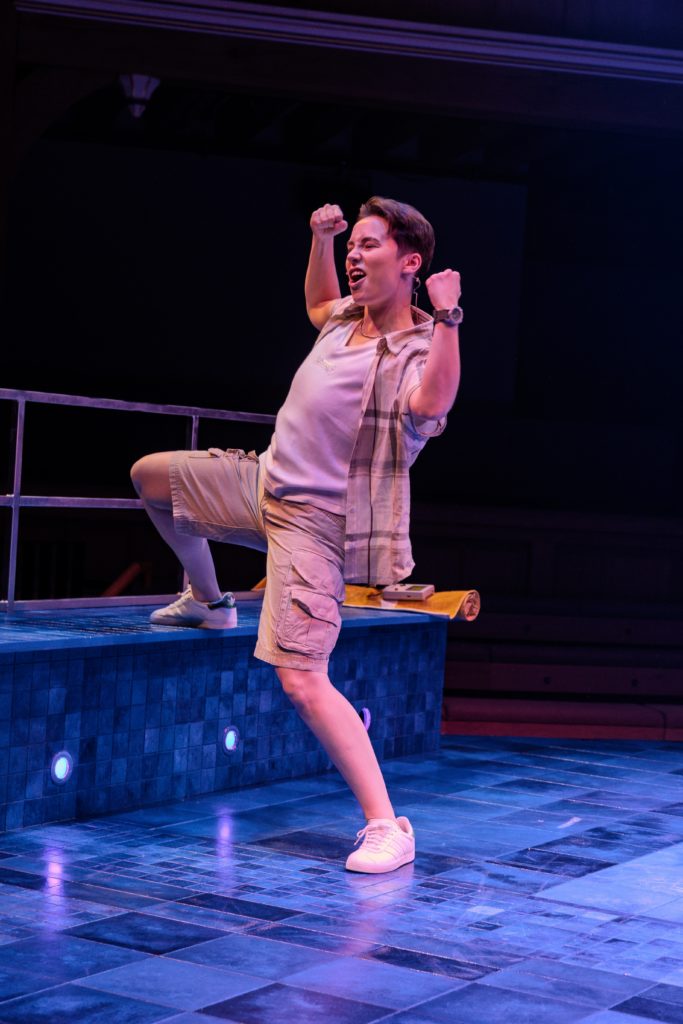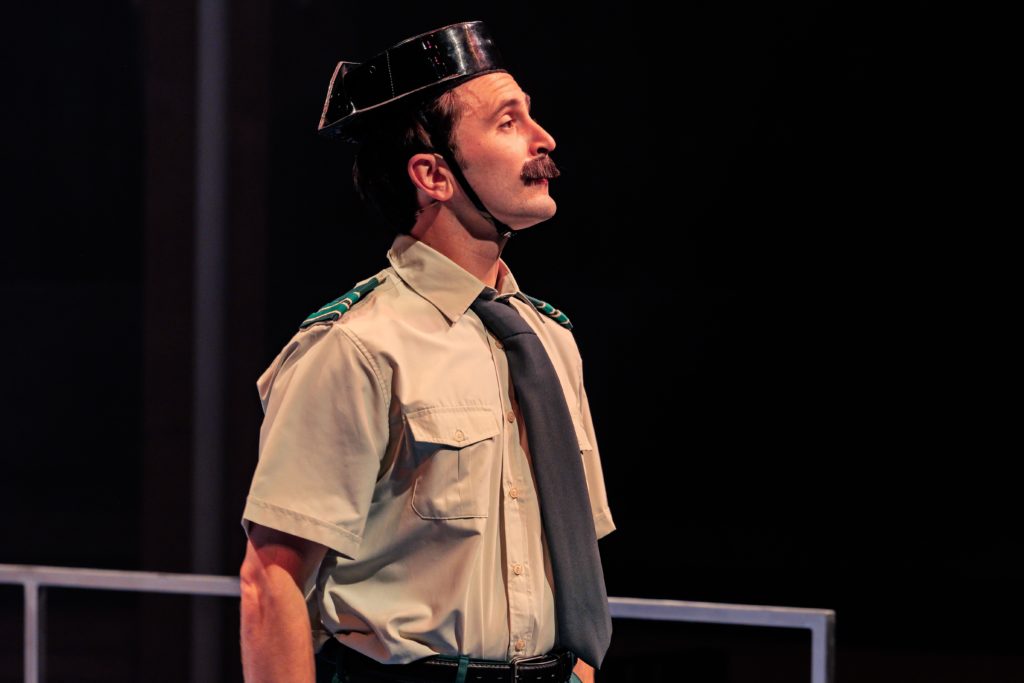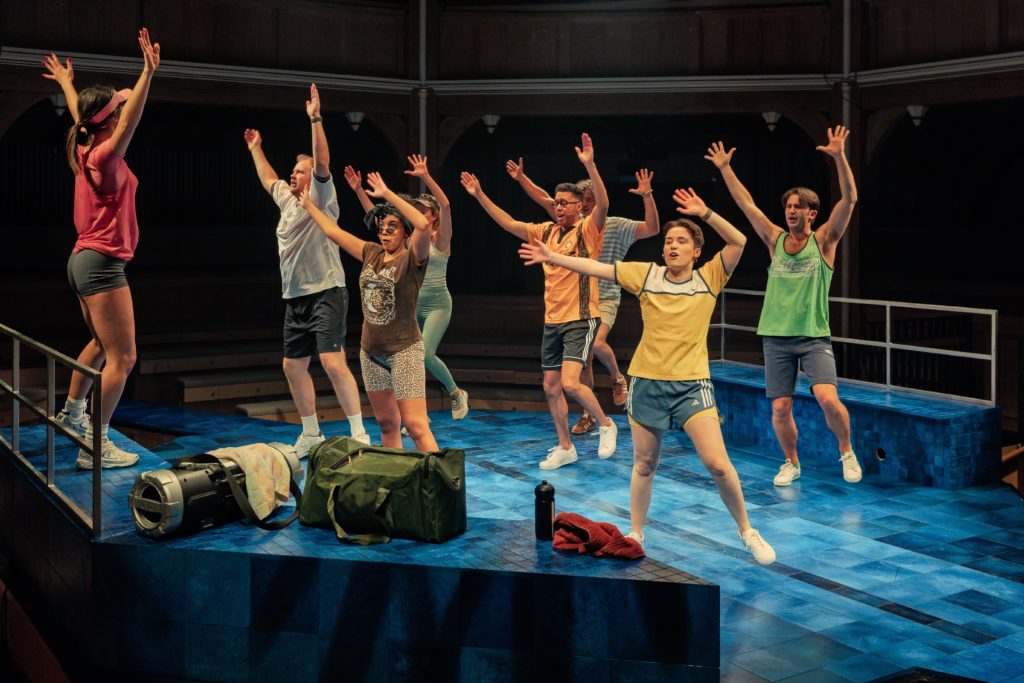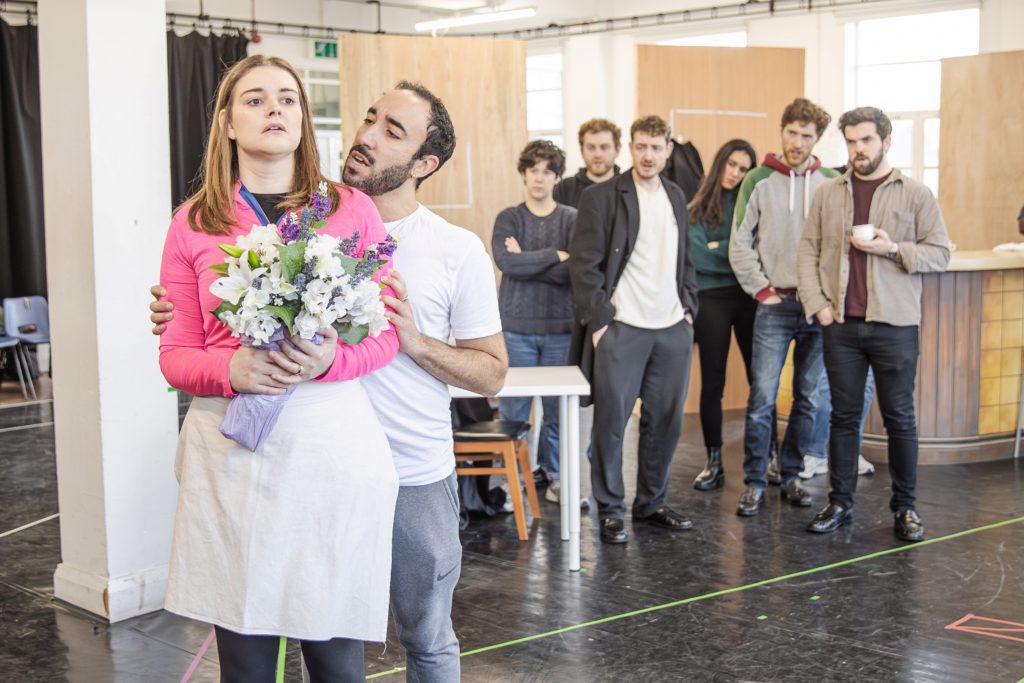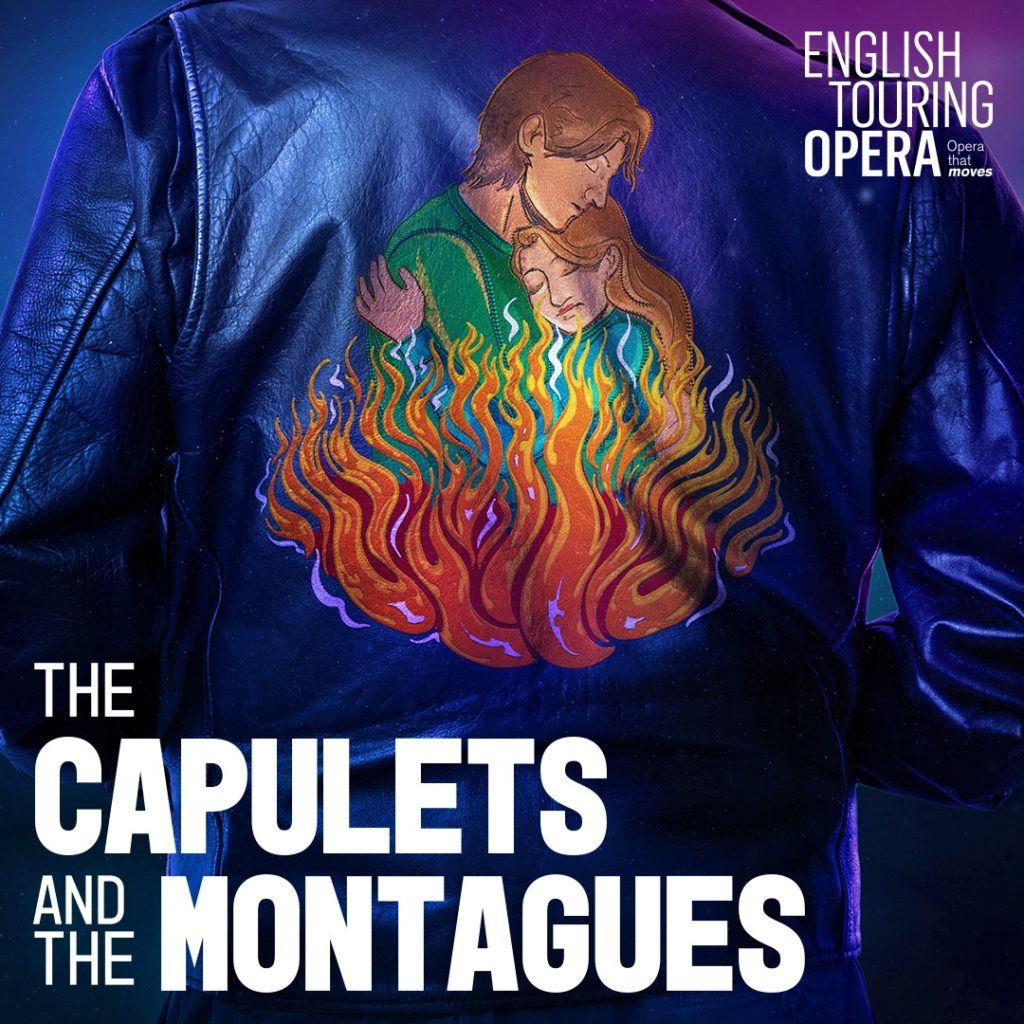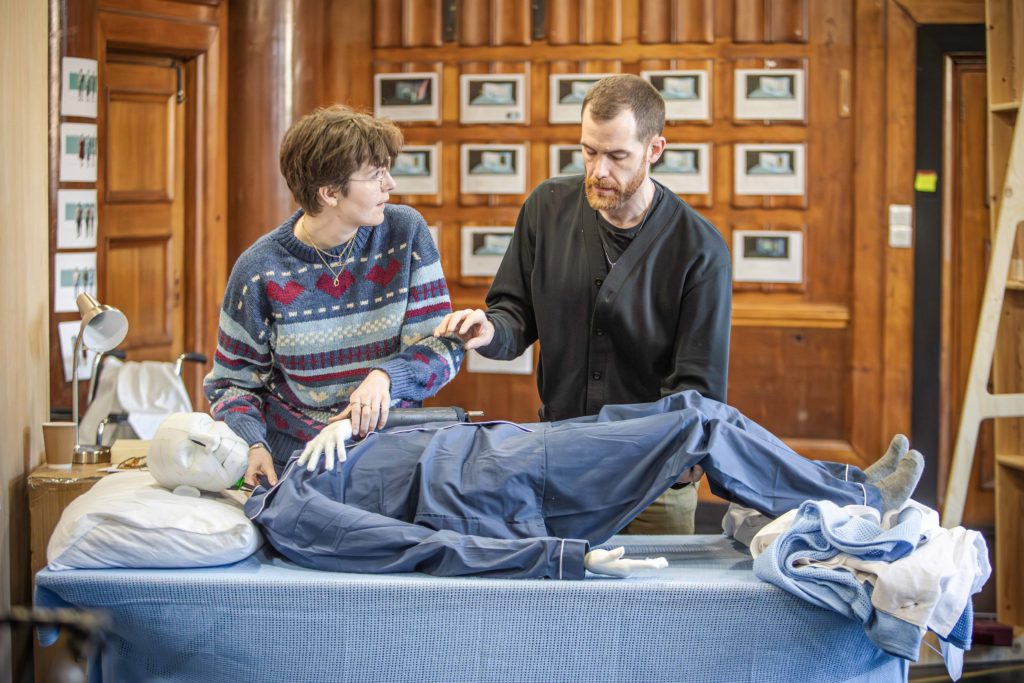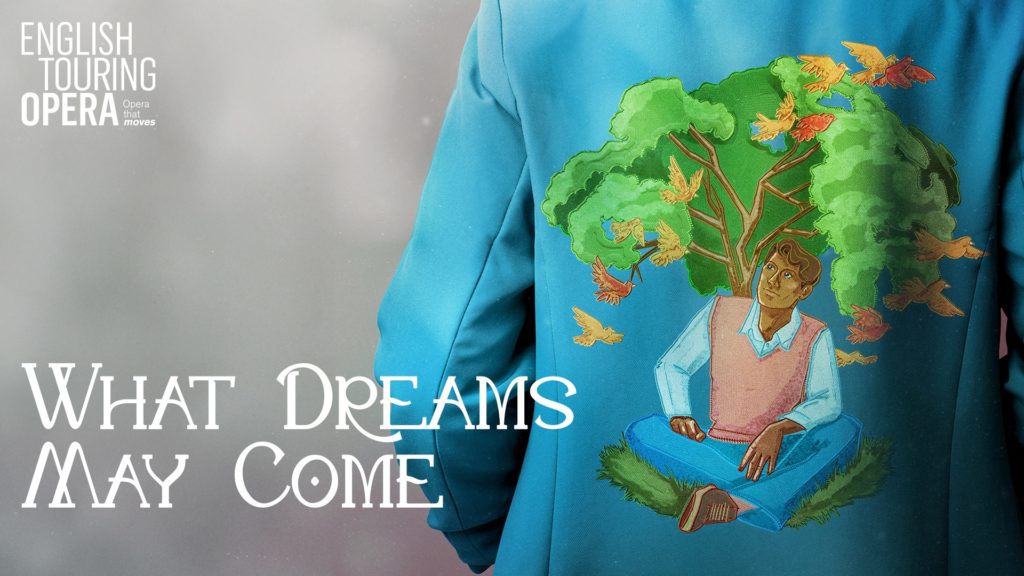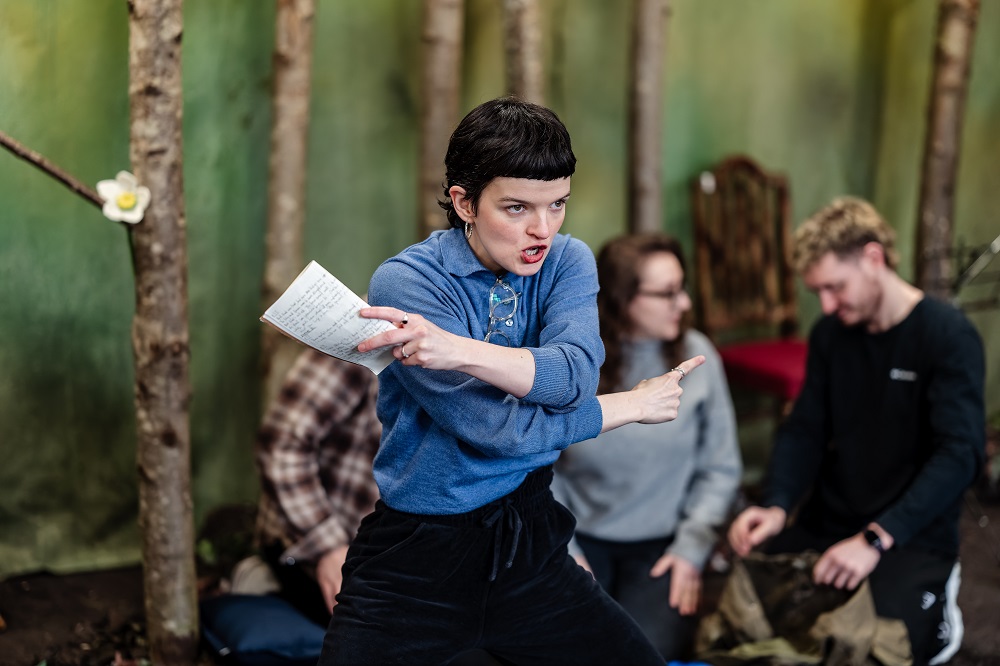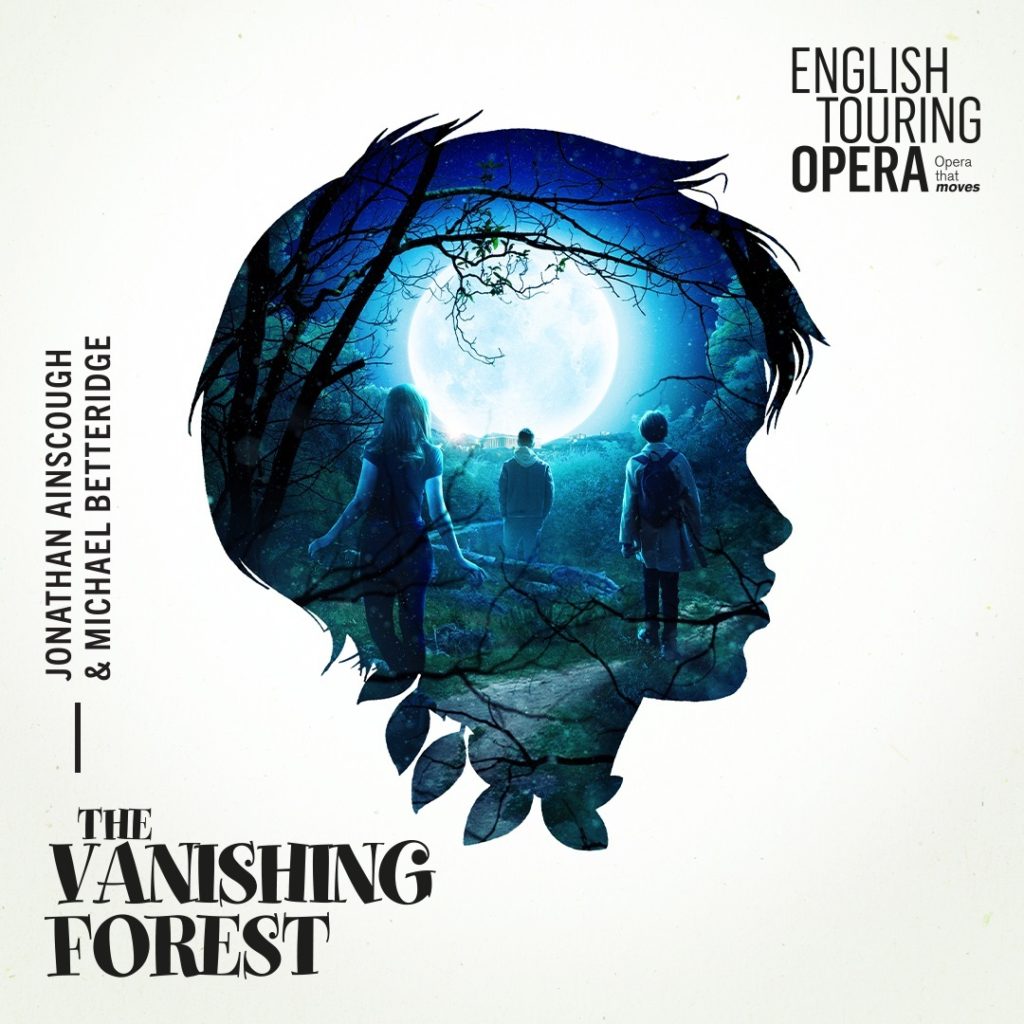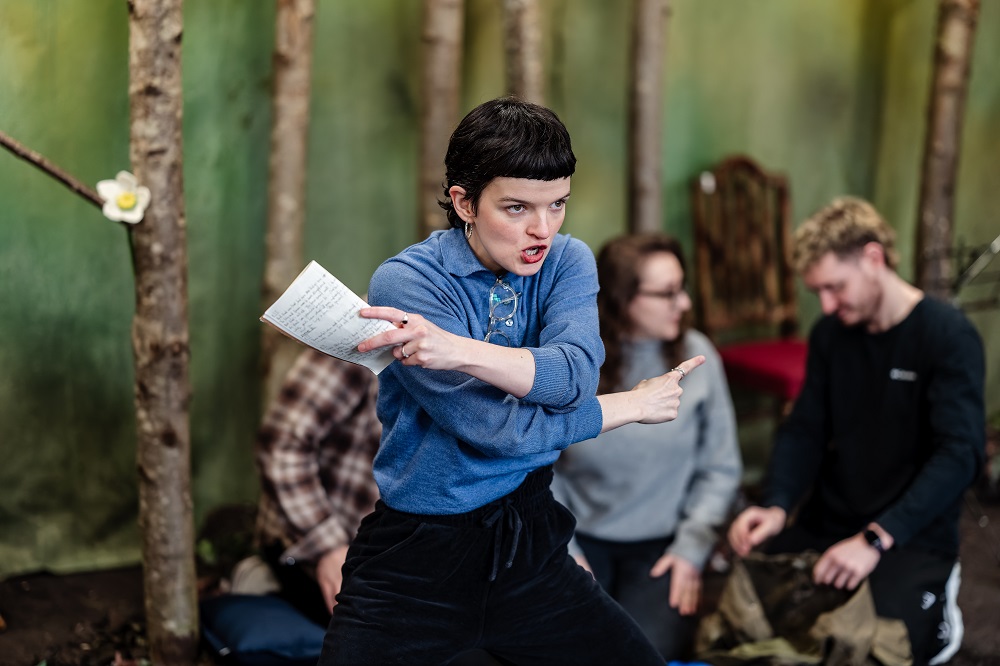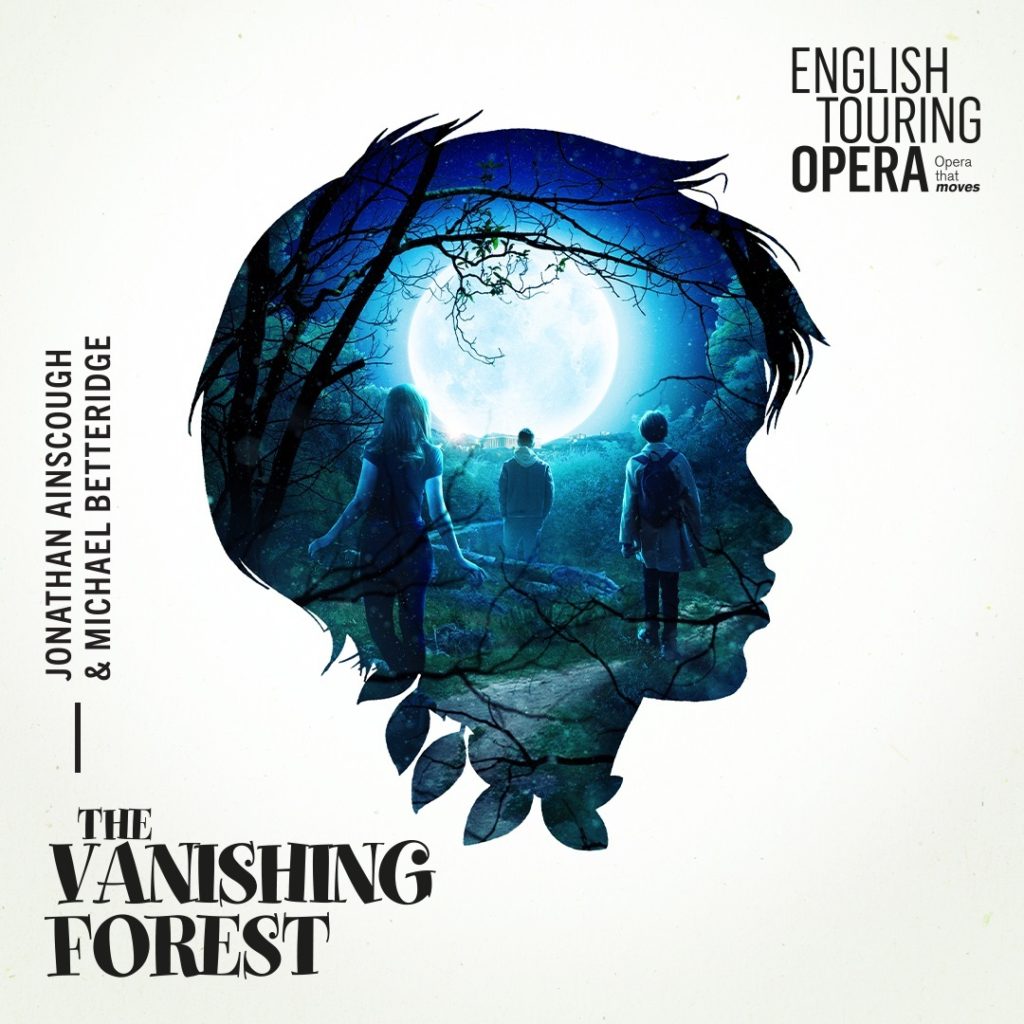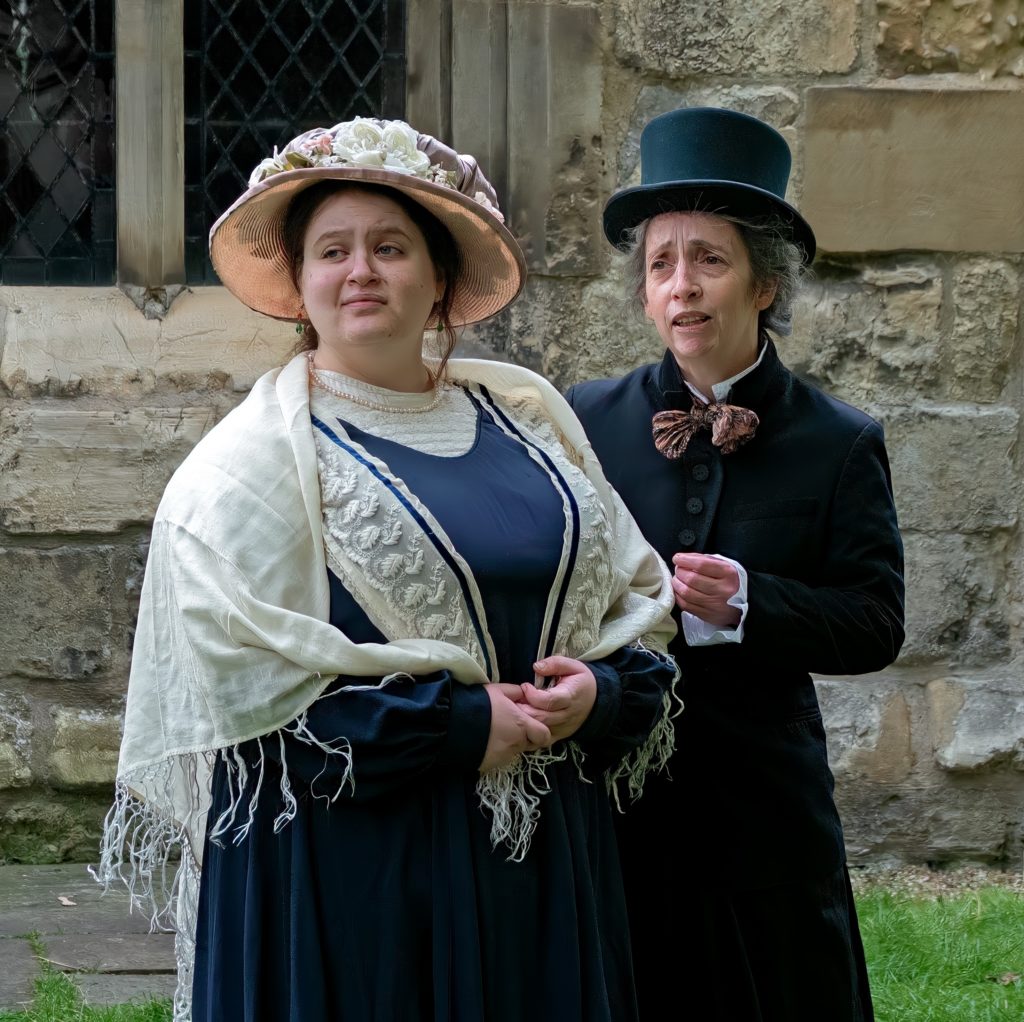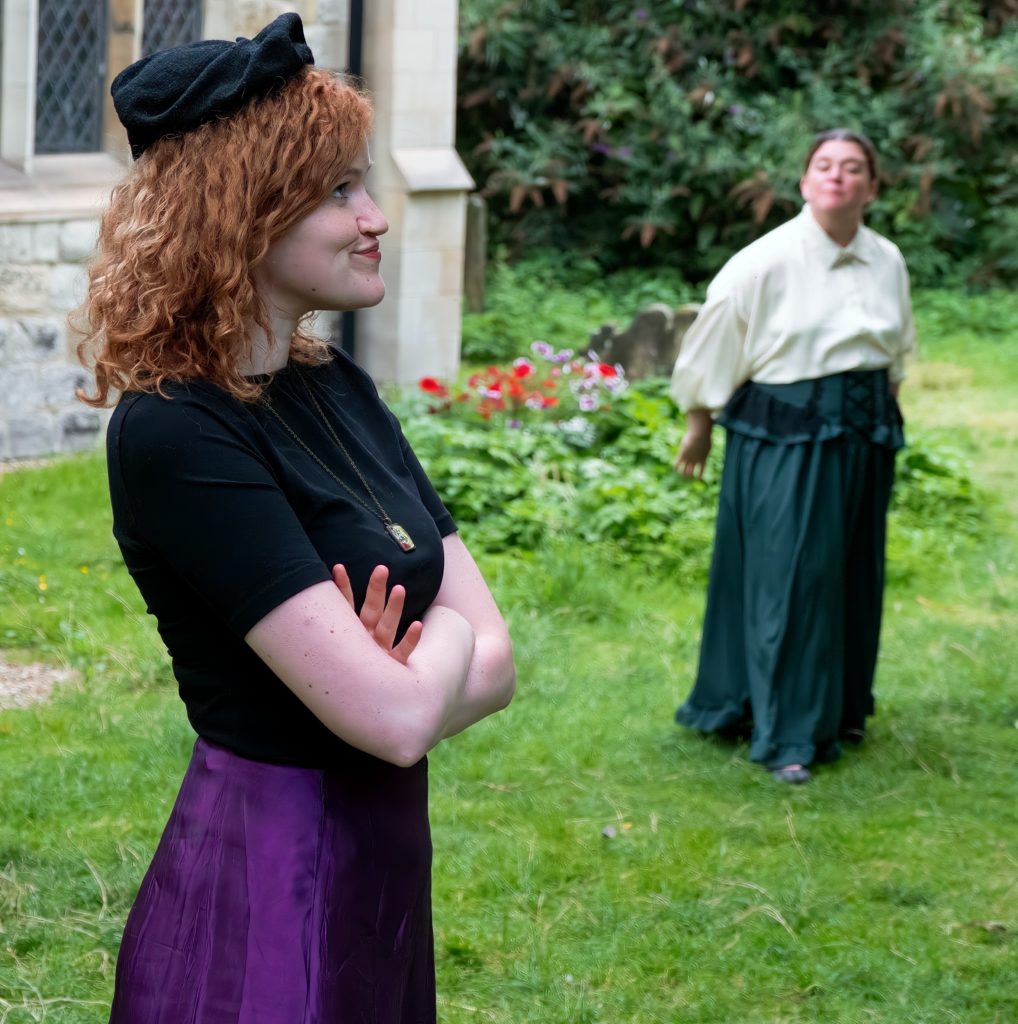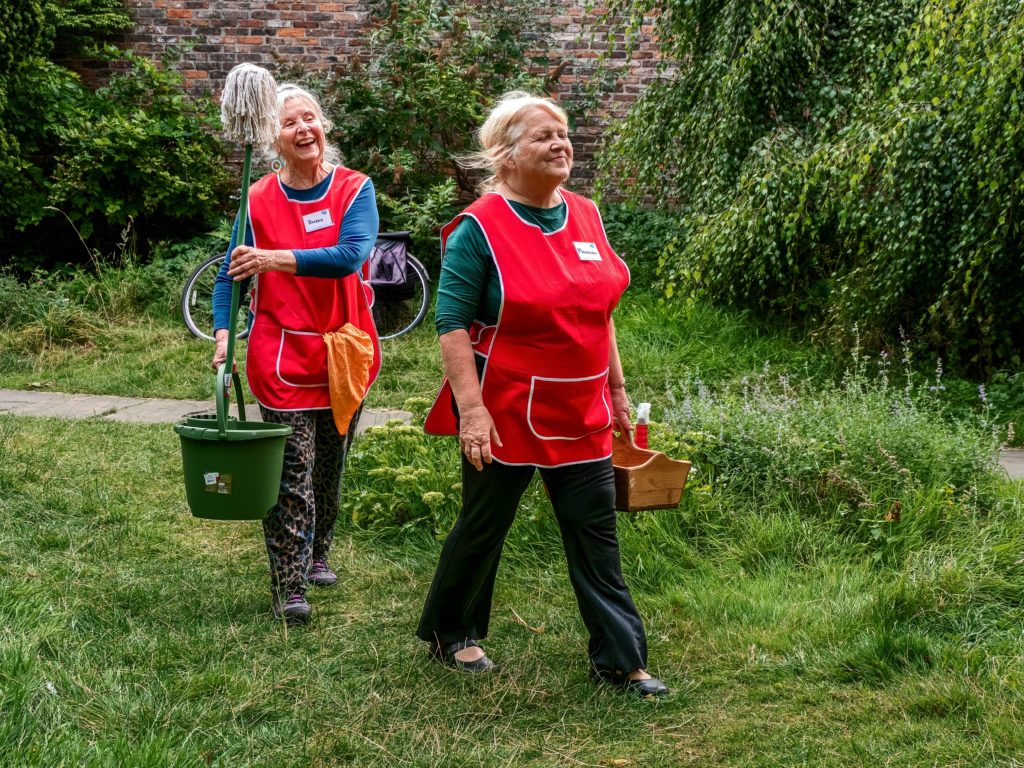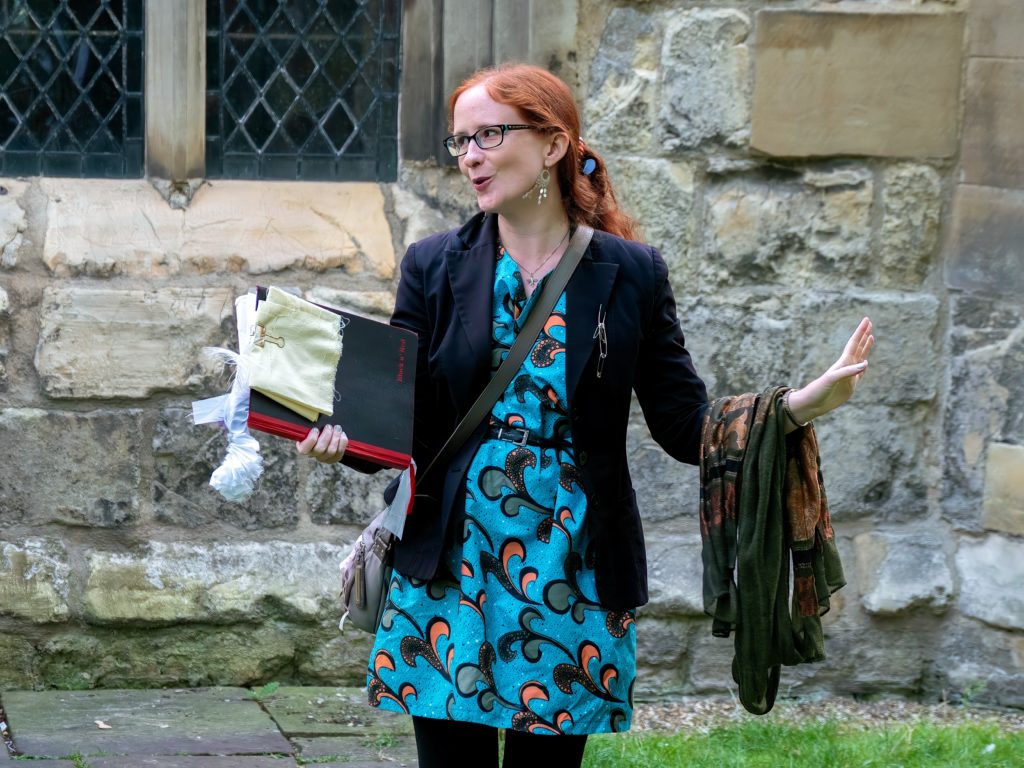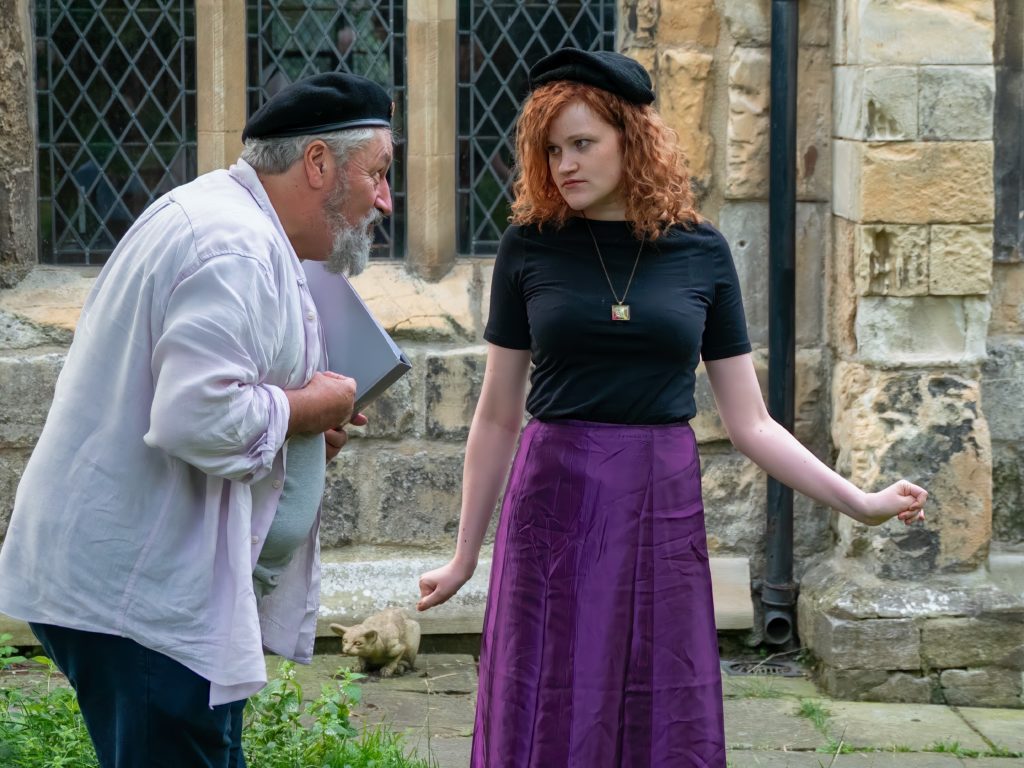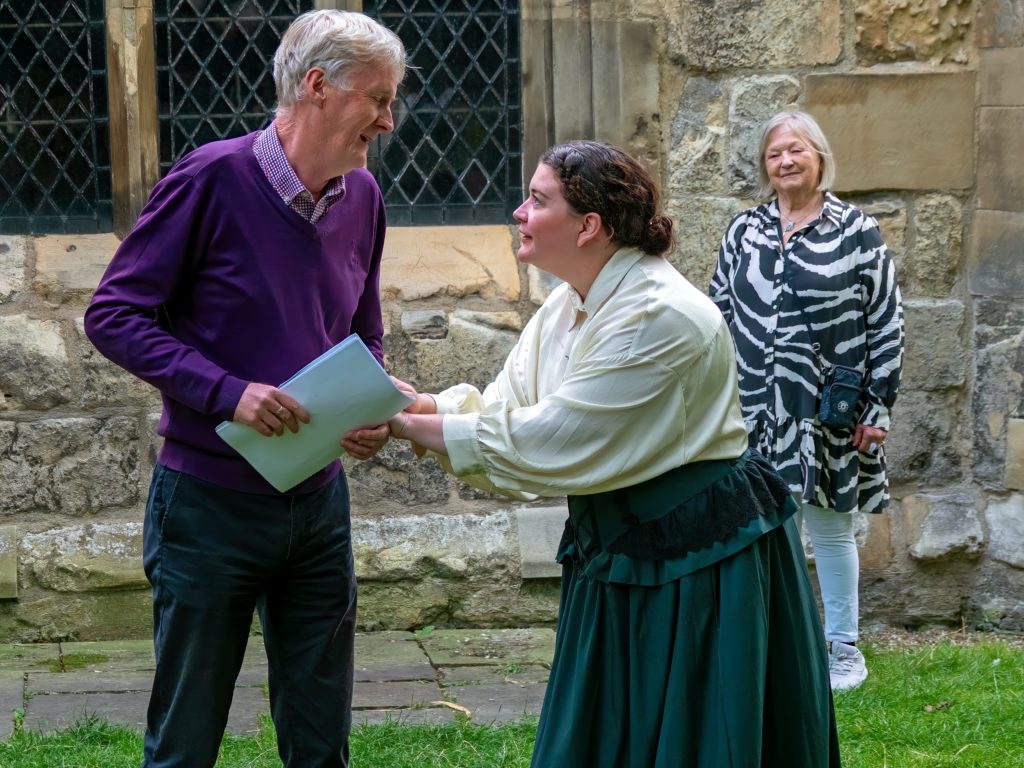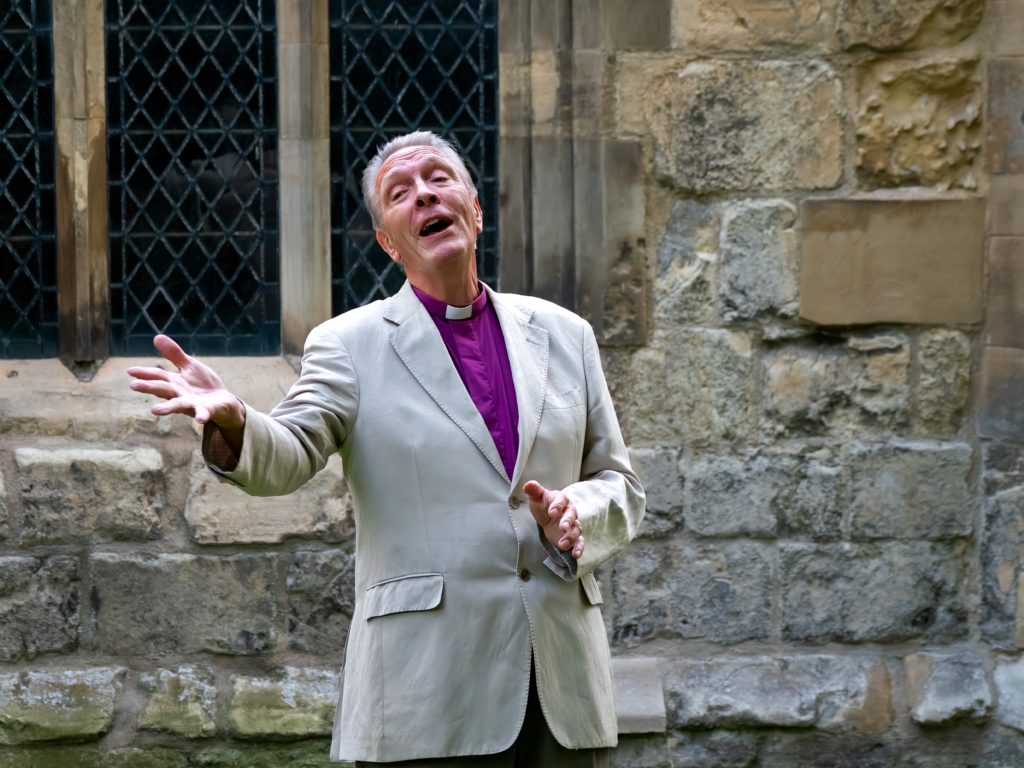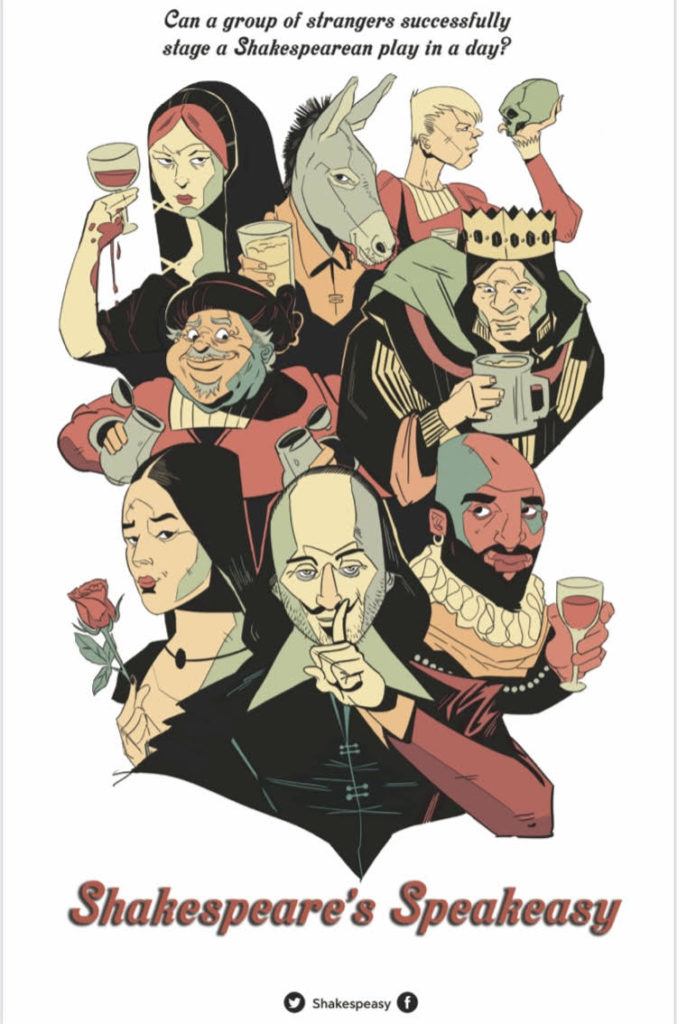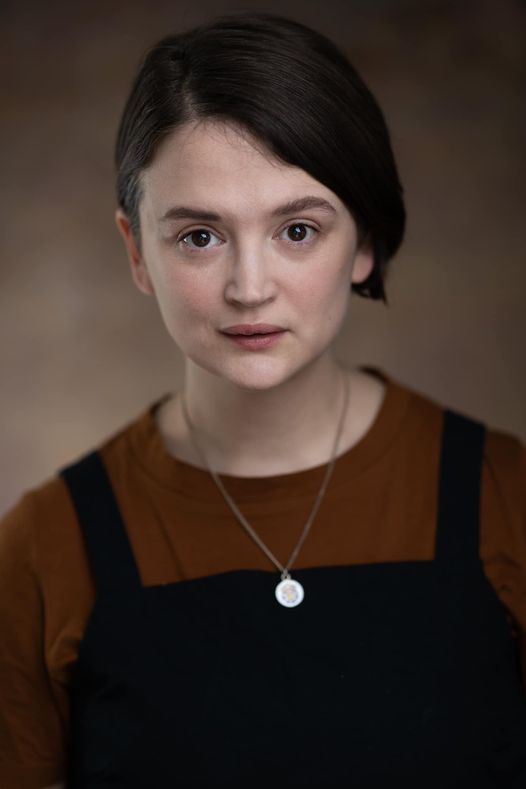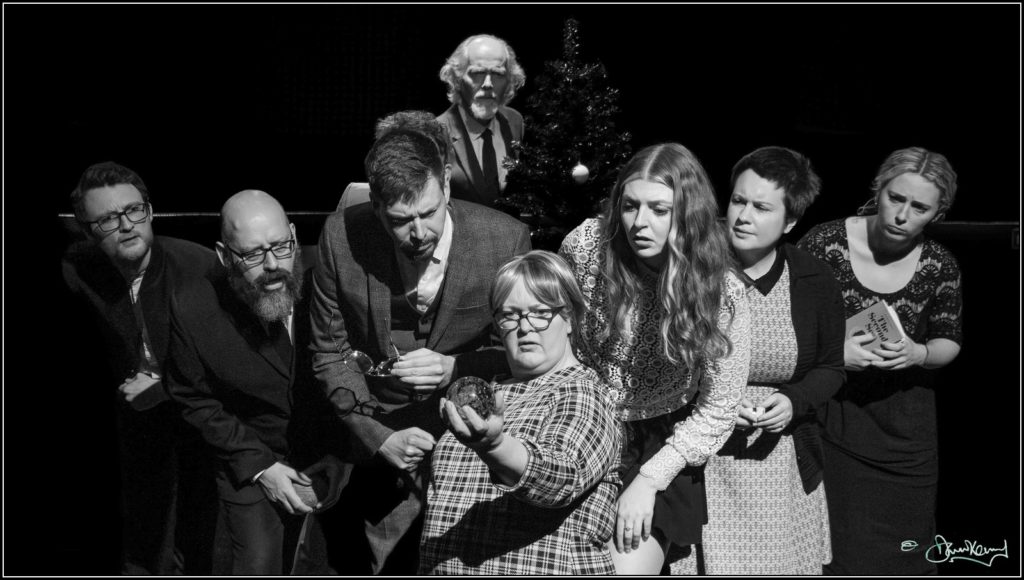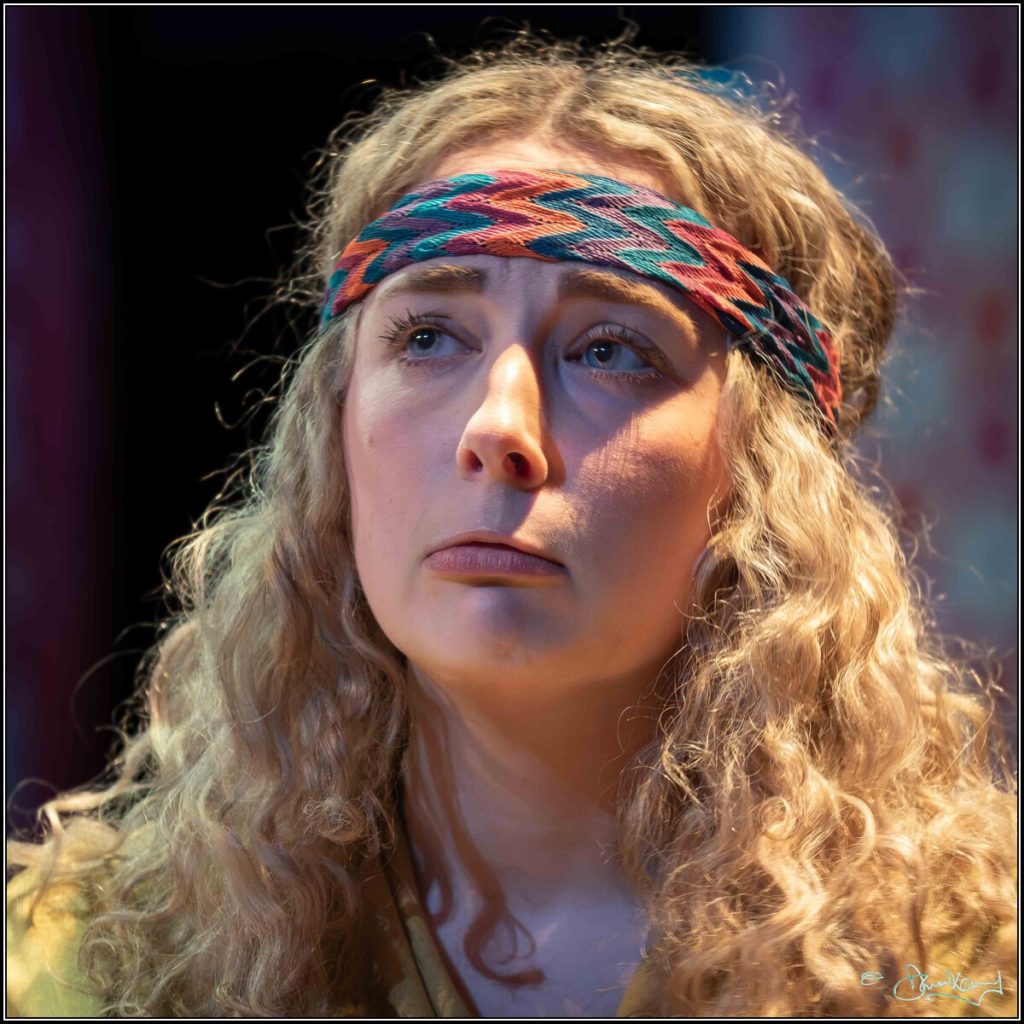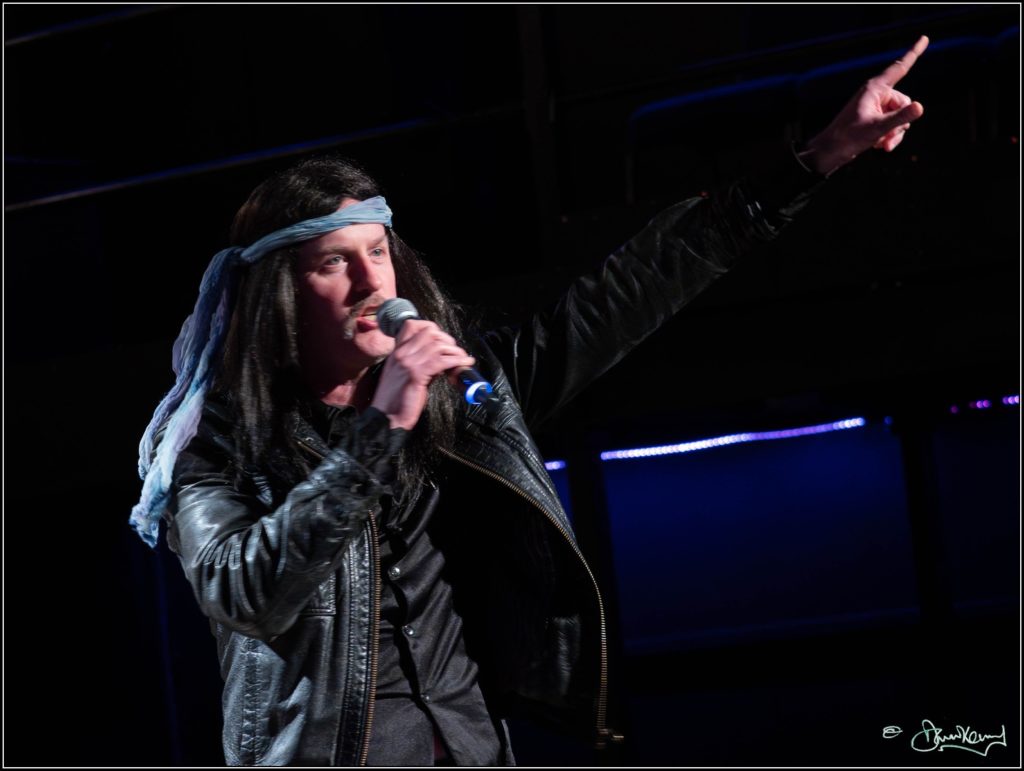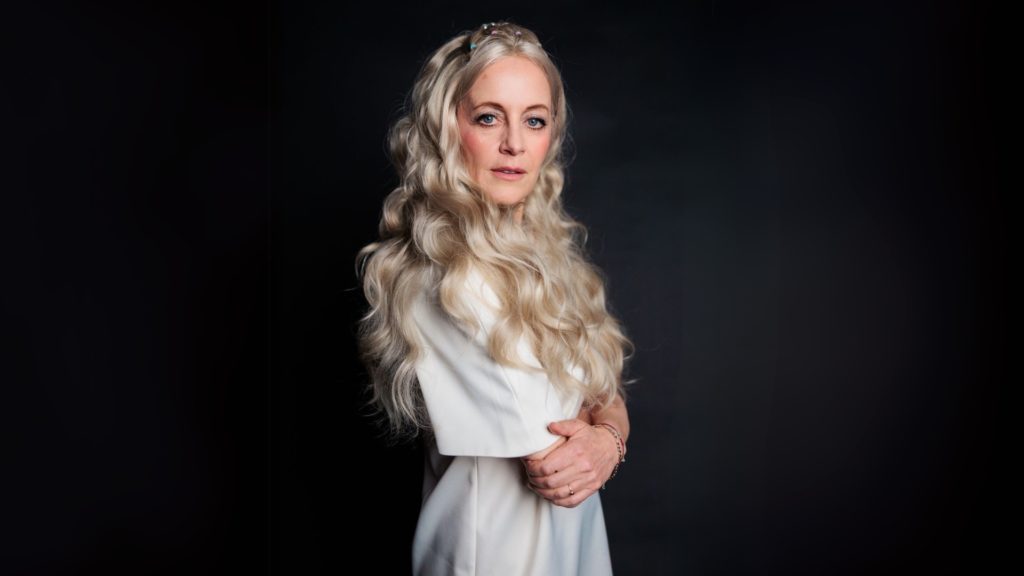
Suzy Cooper’s Queen of the Fairies, Hippolyta, in York Stage’s A Midsummer Night’s Dream
GARY Oldman will not be the only former Berwick Kaler co-star returning to a York stage in 2025.
Suzy Cooper, for more than 20 years the ditzy, posh-voiced, jolly super principal gal in the grand dame’s pantomimes, will lead Nik Briggs’s cast alongside York-born actor Mark Holgate in the dual roles of courtly Hippolyta and Theseus and the quarrelling Queen and King of the Fairies, Titania and Oberon, in York Stage’s reinvention of A Midsummer Night’s Dream from May 6 to 11.
In his tenth anniversary of producing and directing shows at the Grand Opera House, Briggs relocates his debut Shakespeare production from the court of Athens to Athens Court, a northern council estate, where magic is fuelled with mayhem and true love’s path still does not run smooth, set to a Nineties and Noughties’ dancefloor soundtrack of Freed From Desire, No Limits, Show Me Love, Everytime We Touch et al as Shakespeare meets Shameless.
Presented as York Stage’s first co-production with the Cumberland Street theatre, Briggs’s ‘Dream’ will feature a new score by musical director Stephen Hackshaw. “Whilst not being a musical, the show will include a live band alongside powerhouse vocals that York Stage are famous for with their musical production,” says Nik.
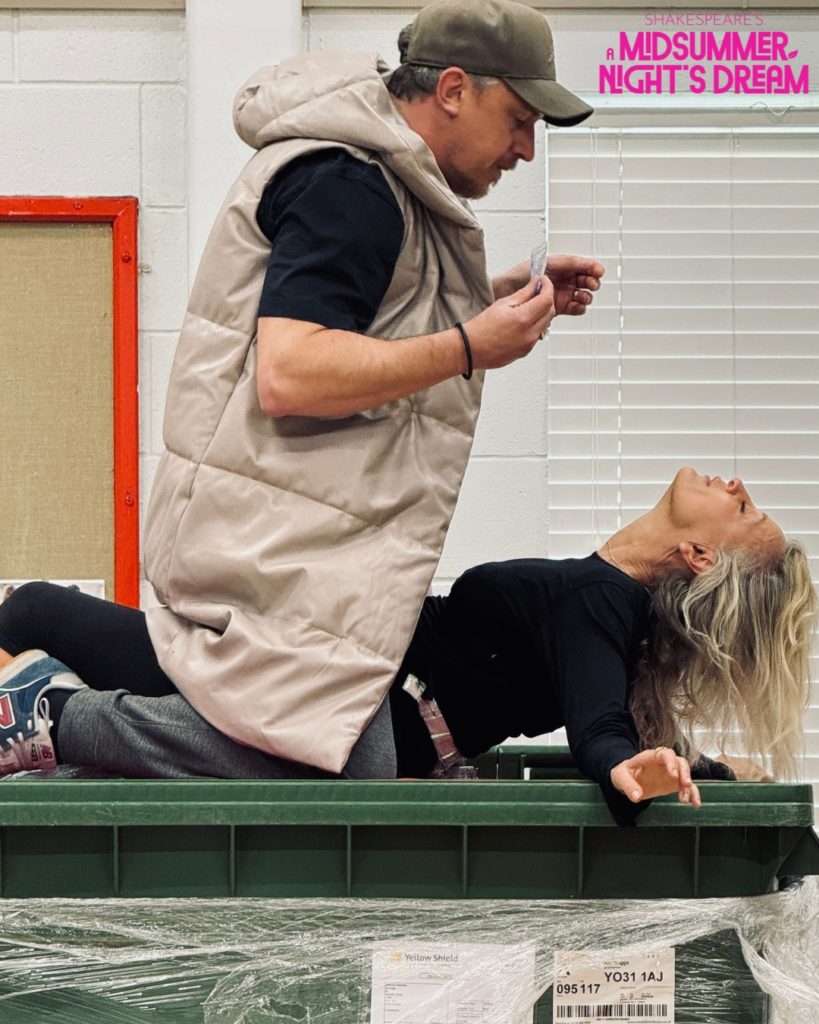
Mark Holgate and Suzy Cooper in rehearsal for York Stage’s A Midsummer Night’s Dream
Suzy last trod the Grand Opera House boards in dowager dame Berwick Kaler’s valedictory pantomime after 47 years on the York stage in Robinson Crusoe And The Pirates Of The River Ouse, the final curtain falling on January 6 2024.
“It will be lovely to be back in York, performing at the Grand Opera House again,” says Suzy. ““I’ve not worked with Mark before, but he did the Shakespeare’s Rose Theatre season in York the same summer that I did it at Blenheim, when we brushed shoulders in that amazing tent when we gathered for the start of the second summer. It’s going to be a lot of fun working with him.
“For ‘Dream’, the lovely Nik rang me and said, ‘it’s a very unusual thing we’re doing, a co-production with the Grand Opera House, and would you like to play Hippolyta?’. I didn’t need to think about, and not to have to audition was music to my ears!”
Mark’s career has taken in the Royal Shakespeare Company, Cheek By Jowl, Sheffield Crucible and theatres across the UK, as well as such roles as Banquo in Macbeth and Duke Orsino in Twelfth Night in Shakespeare’s Rose Theatre seasons in 2018 and 2019 in his home city.

Forest fireworks: Mark Holgate’s Oberon in York Stage’s A Midsummer Night’s Dream
He last performed on a York stage in Riding Lights Theatre Company’s staged reading of Maryland, Lucy Kirkwood’s “howl” of a protest play, directed by Bridget Foreman at the Friargate Theatre in November 2021.
Mark’s participation in York Stage’s ‘Dream’ was “actually all down to my Dad”. “He has always been a great support of my acting career,” he says. “He read an article in The Press and sent it over to me, about York Stage putting on ‘Dream’ and that they were holding auditions. I dropped Nik a line, came to York Stage to meet him and that was that.”
Reflecting on the contrast between his past Shakespeare experiences, including Shakespeare’s Rose Theatre, and now with York Stage, Mark says: “The main difference is the rehearsal schedule. A lot of the cast have 9-5s and so rehearsals have worked around people’s availability. Whereas I would rehearse for three or four weeks consecutively, with this production you could have a gap of two weeks before being back in the room again.
“So you really have to be on your game at keeping track of everything you’ve discovered and set in rehearsal. Working in this way is completely new to me. It definitely keeps it fresh and exciting.”
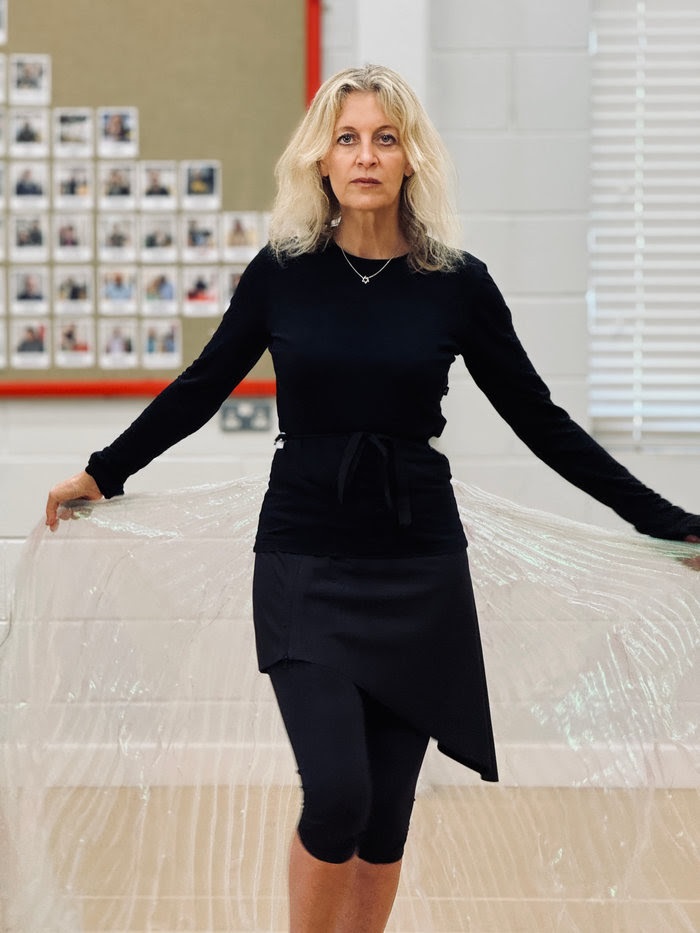
Suzy Cooper: “Making decisions organically about how we’ll play Hippolyta’s relationship with Theseus”
Suzy adds: “Mark and I have had around five days’ rehearsals, which though it sounds really scary, as you’d normally do three weeks, but actually they’re intense days, so I just have to keep calm and carry on!
“We’re still undecided, right up to the last minute, making decisions organically about how we’ll play Hippolyta’s relationship with Theseus, where she’s been won as a prize, but maybe she’s not unhappy about that. Wait and see!
“It’s trickier than Titania, and you know me, I need to get my [acting] shoes on to get my feet rooted in a role.”
What are the challenges of playing two roles, Theseus and Oberon, in one play, Mark? “Remembering who I am playing in each scene. Only joking! Theseus is quite tricky as, once you’ve seen him in the first scene, he doesn’t appear again right till the end. Keeping hold of his journey after playing Oberon in between will be the challenge.
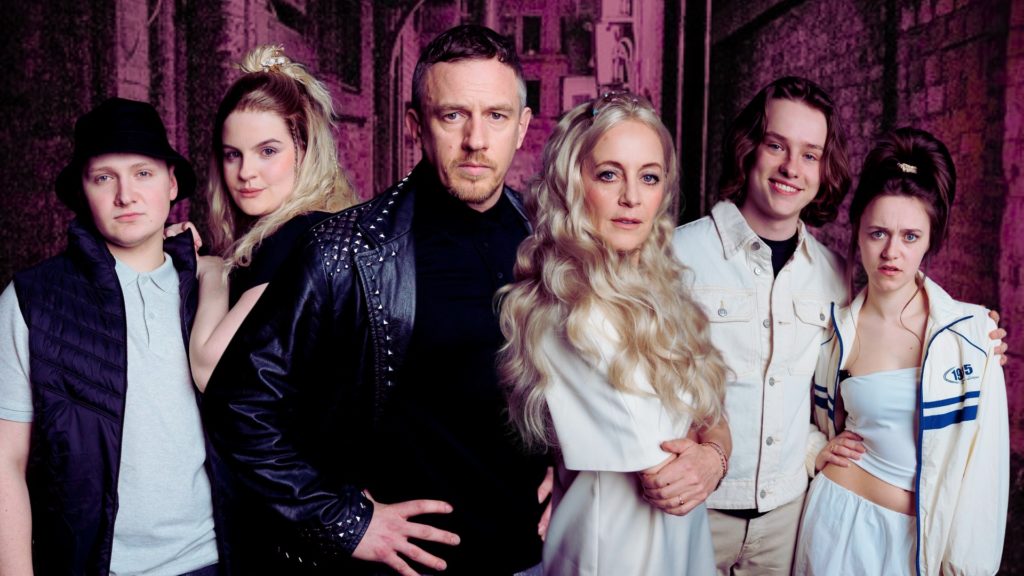
Mark Holgate’s Oberon and Suzy Cooper’s Hippolyta, centre, with Sam Roberts’s Demetrius, left, Amy Domeneghetti’s Helena, Will Parsons’ Lysander and Meg Olssen’s Hermia in York Stage’s A Midsummer Night’s Dream
“I’m really looking forward to taking them on to the Grand Opera House stage. Both of my daughters have performed there but I never have. They beat me to it.”
York Stage’s ‘Dream’ calls on Mark to do a double act at the double with Suzy Cooper’s Hippolyta and Titania. “Suzy and I have never worked together but we have crossed paths. On the first day of rehearsal I was a bit nervous as usual on the first day. Like the first day of school. Then Suzy entered the room, I walked over and gave her a hug and all my nervous energy disappeared.
“She has been an absolute joy to work with and I really look forward to sharing the Grand Opera House stage with her.”
Both Suzy and Mark have “previous” form for appearing in Shakespeare’s most performed comedy. “I’ve never played Titania before, but I did play the fairy, Mustardseed, and Snout the Tinker in Lucy Pitman-Wallace’s production at York Theatre Royal, with Malcom Skates as Bottom and Andrina Carroll as Titania, and then Peter Quince in Shakespeare’s Rose Theatre’s production at Blenheim Palace in 2019, the summer when I also played Lady Macbeth in Macbeth,” says Suzy.
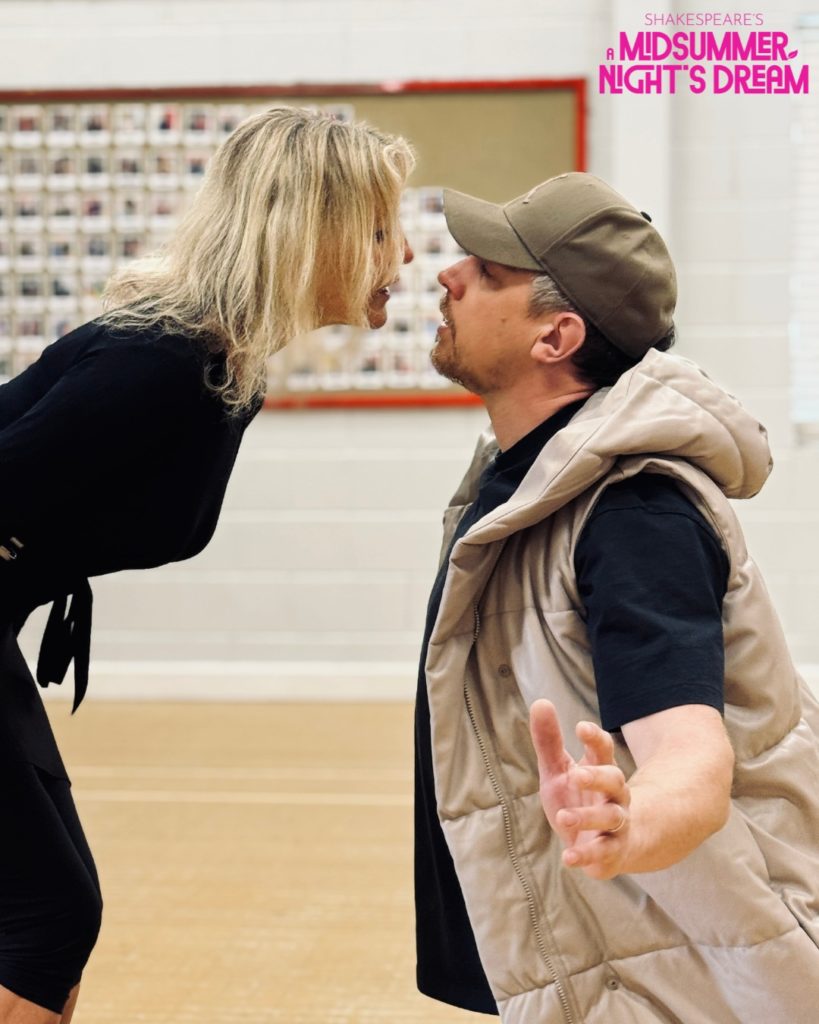
“Suzy has been an absolute joy to work with and I really look forward to sharing the Grand Opera House stage with her,” says Mark Holgate
“Those nights doing ‘Dream’ were so joyful, when director Juliet Forster said ‘just trust in what you do’, but Nik’s show is a very different ‘Dream to any I’ve seen or done before, with Nik’s wonderful design and working with a composer. It’s the youngest, most exciting version I’ve experienced. I’m seeing out my history in the play with these new actors.”
Mark was part of Juliet Forster’s cast for Shakespeare’s Rose Theatre production of ‘Dream’ at the Eye of York in 2018. “The audience just love it,” he says, exploring the 1595 play’s abiding popularity. “Apart from theatre being a great form of escapism, the play itself is such a fantastic piece. It has great characters, it’s funny, dramatic, poetic, and in this production the songs, movement and storytelling from a superb ensemble will really blow your socks off.
“I hope people come to see it because it will be so different to the idea of Shakespeare that you have in your head. It will be a lot of fun. It’s on for only one week, so get those tickets booked.”
York Stage in A Midsummer Night’s Dream, Grand Opera House, York, May 6 to 11, 7.30pm plus 2.30pm Wednesday, Saturday and Sunday matinees . Box office: atgtickets.com/york.
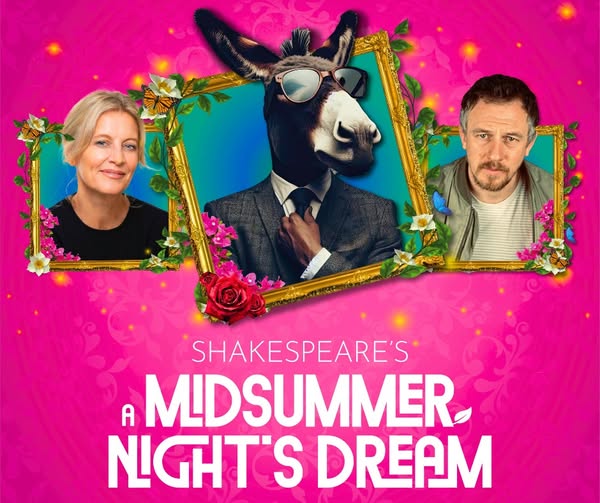
Dream casting: York Stage’s poster artwork for Suzy Cooper and Mark Holgate’s participation in A Midsummer Night’s Dream

